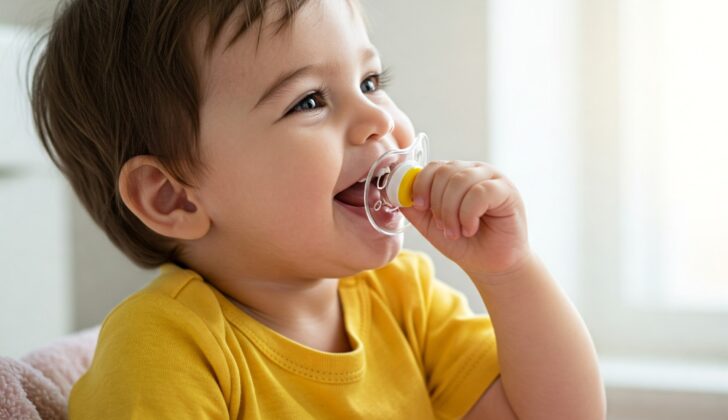Childhood is full of milestones—first steps, first words, and yes, even the first wobbly tooth. But behind those grins and giggles lies a less-discussed journey: the evolving landscape of children’s oral health. From the comfort of a pacifier in infancy to the peer-influenced choices of adolescence, a child’s dental story says as much about their lifestyle as it does their smile.
In today’s world, dental care for children isn’t just about avoiding cavities—it’s a mix of science, psychology, and a touch of patience. Parents are discovering that dental habits established early can influence not just oral health, but also confidence, social development, and long-term wellbeing.
The Pacifier Years: Sweet Soothers and Subtle Risks
For many parents, pacifiers are lifesavers. They help babies self-soothe, settle into sleep, and provide comfort during fussy phases. But as beneficial as they are, prolonged use can shape developing mouths in surprising ways. Thumb-sucking and pacifier habits beyond toddler years may nudge teeth out of alignment, leaving early orthodontic concerns on the table.
That doesn’t mean parents should panic—gentle weaning and routine dental check-ups can help identify issues before they snowball. Today’s children’s dentists often work with parents to strike a healthy balance, ensuring soothing doesn’t come at the expense of a future smile.
Toddler Tantrums Meet Toothbrush Time
Convincing a toddler to brush their teeth can feel like negotiating peace treaties. Yet these daily rituals are essential in building habits that stick for life. Kids learn best through routine and play—turning brushing into a game, using colourful brushes, or even setting a two-minute song can work wonders.
These years are also when children start forming strong taste preferences. Sugary snacks and juices can set the stage for early decay. By balancing diet with smart oral care routines, parents help kids understand that dental health is simply part of daily life—like putting on shoes before leaving the house.
School Smiles: When Routine Meets Reality
Starting school means more independence—and with it, more responsibility over brushing and diet. This is when dentists often see the first wave of cavities. Lunchbox swaps, tuck-shop temptations, and hurried mornings sometimes leave oral hygiene on the back burner.
Here’s where parental consistency pays off. Encouraging kids to “own” their smiles helps shift responsibility in positive ways. Whether it’s choosing their toothbrush or being praised for brushing twice daily, children begin to feel accountable for their dental care.
The Tech Advantage: Dentistry Gets an Upgrade
Childhood dental visits once meant oversized chairs, intimidating drills, and bright lights. Thankfully, things have changed. Today, parents can rely on the modern technology used in children’s dentistry to make visits not only less stressful, but even engaging.
Digital scanners reduce the need for uncomfortable moulds, laser treatments offer gentler alternatives to traditional drills, and kid-friendly clinics now use everything from ceiling TVs to calming colour schemes. This mix of tech and design ensures that dental care feels more like a friendly check-in than a dreaded appointment.
Peer Pressure, Braces, and Beyond
By adolescence, peer pressure takes the reins. Appearance becomes more than health—it’s about identity. Teens may start caring more about straight teeth, fresh breath, and whitening. Orthodontic treatments, once a stigma, have become a rite of passage, with kids often comparing colourful brace bands or discussing clear aligners.
But this stage also brings challenges: energy drinks, late-night snacking, and sometimes, neglecting dental hygiene altogether. As teens navigate self-image and social dynamics, supportive reminders from parents and professionals help anchor them to the basics.
A Smile That Lasts a Lifetime
Every stage of childhood oral health—from pacifiers to peer groups—builds toward the bigger picture of lifelong wellbeing. A healthy smile isn’t just about preventing cavities; it influences confidence in classrooms, comfort at social events, and even future health outcomes.
Parents who guide kids with patience and persistence are investing in far more than dental care—they’re investing in self-esteem and resilience. And while no parent can control every sugary snack or skipped brush, being proactive goes a long way. After all, cavities in kids can lead to discomfort that no child should have to face, especially when prevention is within reach.

